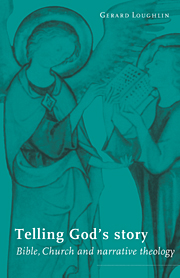Preface to the paperback edition
Published online by Cambridge University Press: 24 August 2009
Summary
All books are of their time, and three years ago this book imagined the culture of its production as a time of ending, without a future. To such a culture it sought to repeat the Christian story of a true telos that brings not closure, but an infinite prospect: temporality construed as the gift of eternity. Appearing again – in a corrected and more accessible form, in what is being called the ‘millennium year’ – it is hoped that the story of our giftedness, and of the God who comes in and as gift, will still be found relevant and appropriate to the times.
No doubt if the book were being written today, I would attempt greater clarity and say some things differently and others newly. An indication of these potential changes can be found in my essay in The Cambridge Companion to Christian Doctrine, edited by Colin E. Gunton (Cambridge University Press 1997). In particular, the essay offers a supplementary account of how Christian understanding of the Bible and tradition changed in the modern period, and outlines the nature of authoritative scriptural performance in the Church. It may clarify, if not alter, the concerns of those readers who have found – or still and will find – the book's ecclesiology either too open or too oppressive, too liberal or too limiting of developments in the telling of God's story.
A book changes as its readers change, as it is encountered in different ecclesial and life stories. While some found Telling God's Story clearly Protestant, others found it deeply Catholic. I thought it was Ecumenical, as did some readers.
- Type
- Chapter
- Information
- Telling God's StoryBible, Church and Narrative Theology, pp. xv - xviPublisher: Cambridge University PressPrint publication year: 1996



